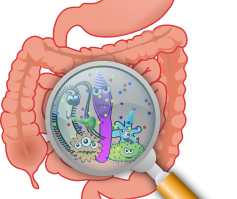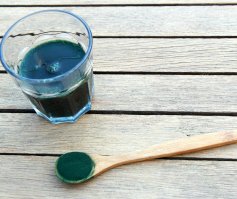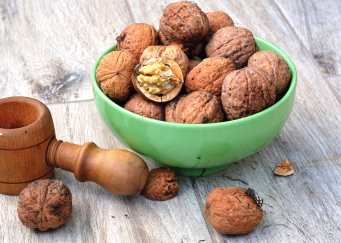 Cereal products, processed food and everything that contains a lot of sugar (sweet drinks, sweets) acidify our body. Balancing acids in our body is based on drawing minerals from tissues, but with a bad diet the amount of minerals becomes insufficient and we start to destroy our body. The reasons are the most often acidifying products, which dominate our menu.
Cereal products, processed food and everything that contains a lot of sugar (sweet drinks, sweets) acidify our body. Balancing acids in our body is based on drawing minerals from tissues, but with a bad diet the amount of minerals becomes insufficient and we start to destroy our body. The reasons are the most often acidifying products, which dominate our menu.
 It is not bad to consume acid products for a short period of time, as the body will start to introduce acid balance by taking microelements from our tissues, e.g. calcium, sodium or potassium. Unfortunately, this situation cannot be repeated too often, because in the end we will start to lack these elements in our body, which directly contributes to the demineralization of tissues. The result of this process can be osteoporosis, decalcification of the body, brittleness of teeth and nails, dental caries, coronary disease, atherosclerosis, hemorrhages, problems with the liver, kidneys, hair... In the worst cases even neoplastic changes.
It is not bad to consume acid products for a short period of time, as the body will start to introduce acid balance by taking microelements from our tissues, e.g. calcium, sodium or potassium. Unfortunately, this situation cannot be repeated too often, because in the end we will start to lack these elements in our body, which directly contributes to the demineralization of tissues. The result of this process can be osteoporosis, decalcification of the body, brittleness of teeth and nails, dental caries, coronary disease, atherosclerosis, hemorrhages, problems with the liver, kidneys, hair... In the worst cases even neoplastic changes.
It is therefore worth knowing the enemy, and here is a list of those products that are highly acid-forming (their pH is in the range from 5 to 5.9 pH):
 Meat and cold cuts (especially pork)
Meat and cold cuts (especially pork)- Sugar and all products containing it (especially sweet drinks)
- Sweeteners
- White wheat flour and all products containing it
- White rice
- Yellow cheeses
- Coffee
- Black tea
- Cocoa, chocolate
- Salt
Medium-acid-forming products, i.e. those with a pH in the range of 6 to 6.9 include:
- Fish
- Eggs
- Rye bread
- Cereal flakes
- Wholegrain pasta
- Brown rice
- Groundnuts
- Kiwis

Nutritional products that are acid-forming to a small extent are:
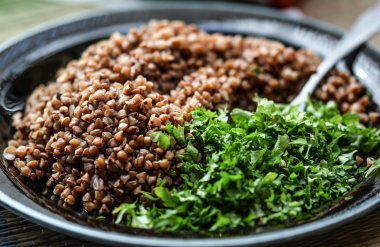 Quark
Quark- Spelt and all spelt products
- Buckwheat groats
- Soya noodles
- Hazelnuts and cashew nuts
- Bran
- Fructose
Other sources of acidity in our body:
- molasses and processed mixtures of bee honeys (especially those from outside Europe)
- dishes fried in deep frying oil
- refined oils (sunflower, soybean, palm)
- part of leguminous plants (soya, peas)
- peeled potatoes
- part of the fruit (berries, plums, cranberries)
- Every alcohol!
- Tobacco
- Drugs
- Stress
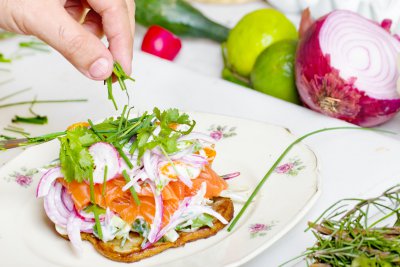 Remember that an ideal diet should consist of 80% neutral and alkaline products and only 20% acid-forming products! Unfortunately, very often the contemporary diet has the opposite proportions. Meat, dairy products and processed products full of chlorine, phosphorus and sulphur dominate, and we lack vegetables and fruits, which are rich in life-giving calcium, sodium, potassium and magnesium....
Remember that an ideal diet should consist of 80% neutral and alkaline products and only 20% acid-forming products! Unfortunately, very often the contemporary diet has the opposite proportions. Meat, dairy products and processed products full of chlorine, phosphorus and sulphur dominate, and we lack vegetables and fruits, which are rich in life-giving calcium, sodium, potassium and magnesium....
Here is a list of reagent neutral products (pH = 7):
- Fresh butter
- Cream
- Whey
- Natural yoghurts
- Vegetable oils
Products that are highly alkaline (pH 8.1 to 9) are:
- Aubergine, pumpkin, courgette, cucumber, leaf lettuce, spinach, botvin, black radish
- Kiwifruit, watermelon, pineapple, dates, figs, raisins
- Freshly squeezed juice without sugar
- True, chanterelles
Medium-base products (pH between 7.1 and 8) is:
Beetroot, broccoli, cabbage, carrot, celery, tomato, horseradish, green beans, kohlrabi, sorrel, leek, cooked spinach
Bananas, peaches, mandarins, lemons, oranges, raspberries, strawberries, avocados, grapes
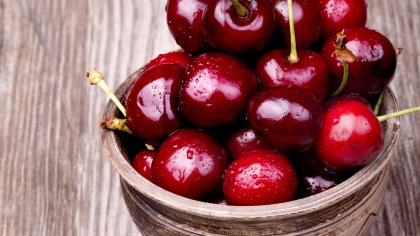
Weak-forming products (pH to 7) is:
- Cauliflower, onion, lamb's lettuce, wheat and spelt sprouts
- Cherries, cherries, apples, pears, plums
- Green tea
- Almonds
- Buttermilk


